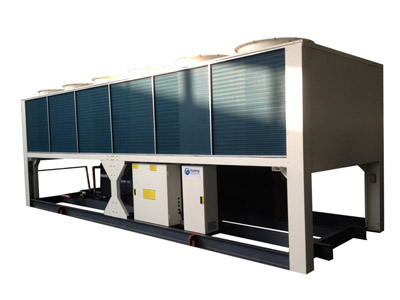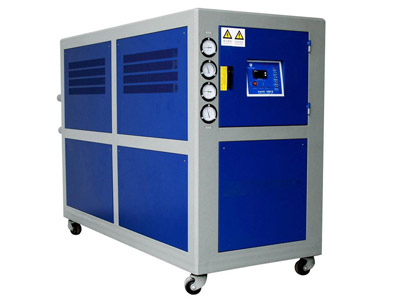Understanding the Chill: Exploring the Difference Between AC and Chiller Systems
In the world of temperature control and cooling, both air conditioning (AC) and chiller systems play significant roles. While they share a common goal of maintaining comfortable indoor environments, these systems have distinct differences in their design, applications, and efficiency.
Differences in Basic Operation:
Air Conditioning (AC) Systems:
AC systems are primarily designed for cooling single rooms or smaller spaces. They operate on a straightforward principle: warm air is drawn into the unit, cooled, and then recirculated into the room. AC systems use a refrigerant to absorb heat from indoor air and release it outside.
Chiller Systems:
Chiller systems are industrial-scale cooling solutions employed for larger spaces, commercial buildings, and industrial processes. They operate on a centralized cooling principle. Chilled water or a glycol solution is produced in a central plant and then circulated through a network of pipes to cool various areas within a building.
Applications:
AC Systems:
AC systems are common in residential homes, small offices, and retail spaces. They are designed to cool a single room or zone. While they can be installed in larger buildings, they become less efficient as the space to be cooled increases.
Chiller Systems:
Chiller systems are used in large commercial and industrial settings. They are efficient for cooling entire buildings, data centers, manufacturing facilities, and even district cooling systems where a single central plant serves multiple buildings.
Energy Efficiency:
AC Systems:
AC units are generally less energy-efficient when used to cool larger spaces because each room requires its own system. This can lead to redundant cooling, resulting in higher energy consumption.
Chiller Systems:
Chiller systems are more energy-efficient for larger spaces due to their centralized nature. They can be equipped with variable speed compressors and other energy-saving technologies to optimize cooling.
Maintenance:
AC Systems:
AC units require individual maintenance for each system, which can be labor-intensive and costly when used in larger buildings with multiple units.
Chiller Systems:
Chiller systems require centralized maintenance, which is more efficient and cost-effective, especially for routine checks and repairs.
The differences between AC and chiller systems are significant and depend on the scale of cooling required. While AC systems are practical for small-scale, residential cooling, chiller systems are designed for more extensive commercial and industrial applications. Understanding these distinctions is essential when choosing the right system to meet specific cooling needs. By making informed decisions, both homeowners and businesses can optimize comfort and energy efficiency in their respective environments.



